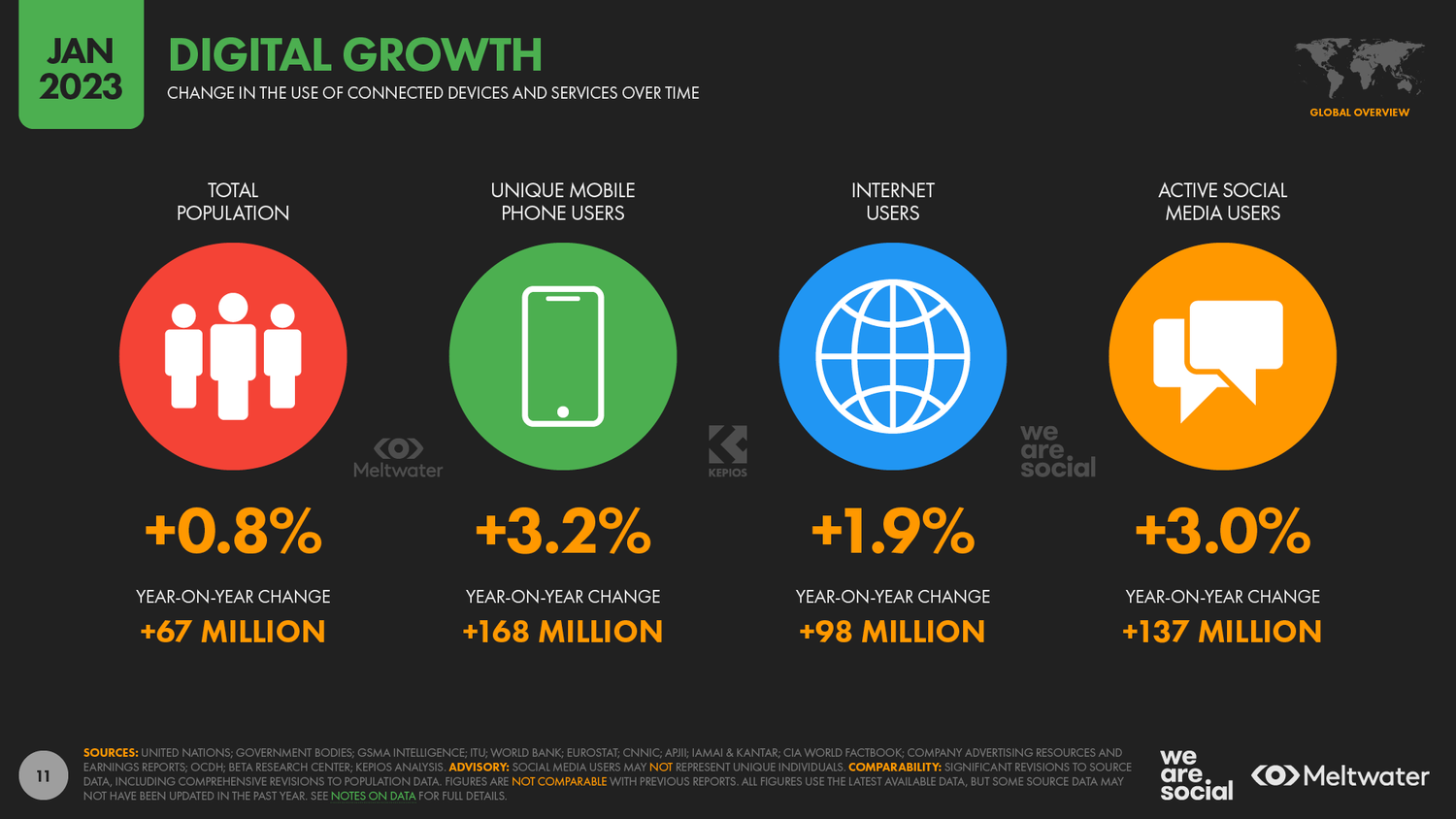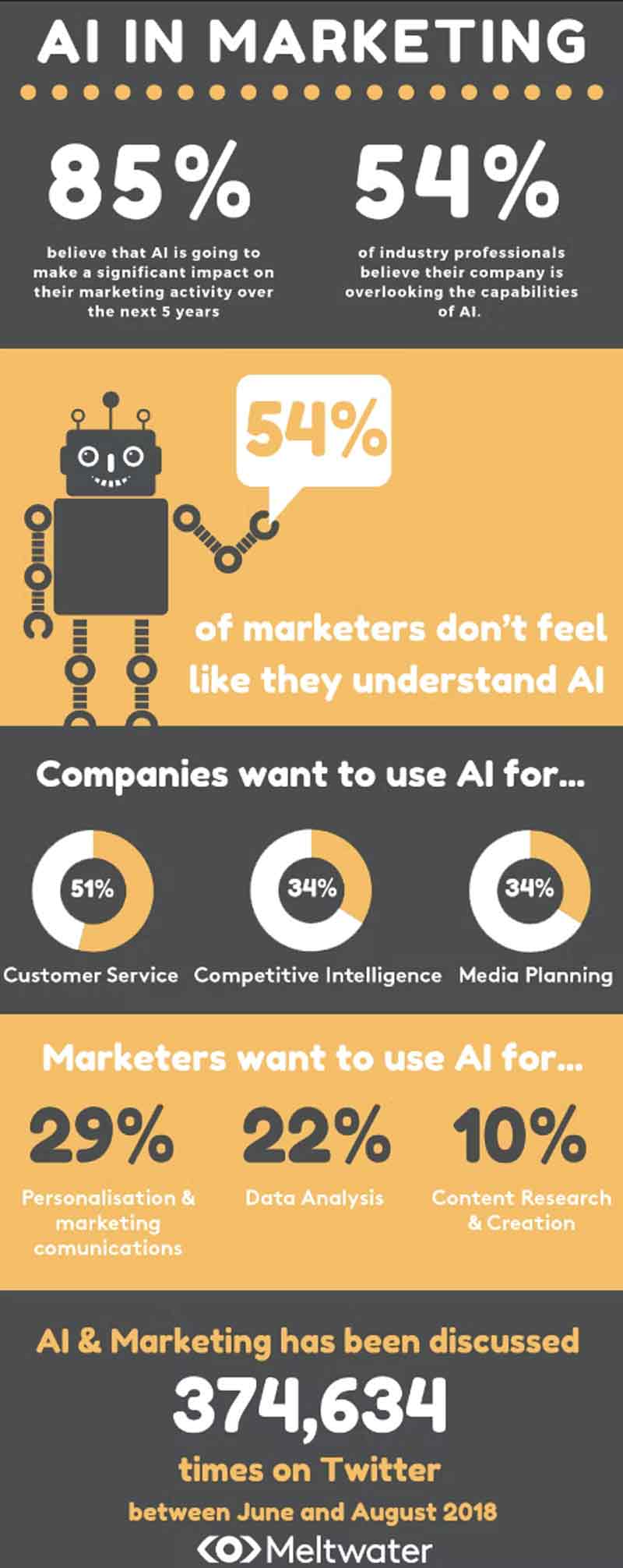Content marketing is a complex process when done well. It requires your team to understand the needs and desires of all audience segments and create engaging, relevant content that appeals to each one regularly and consistently.
60% of B2B marketers produce one or more content pieces daily, and 45% of all marketers plan to push out more content with increased frequency in 2023.
This degree of creativity and productivity can be exhausting for everyone on your team. Content intelligence powered by artificial intelligence might just be a lifesaver.
How To Think About AI-Driven Content Intelligence
When many people think about AI, they imagine robots taking over the world — I, Robot-style — or at least consuming the workforce. Fortunately, humans aren’t that easily replaced.
However, AI can make our content production lives easier, and we’re all for that.
You can think of artificial intelligence as a productivity booster, doing much of the grunt work of content marketing and leaving the creative flair to humans.
One area in which AI can really help us is managing and analyzing big data. We need data to understand our audiences and content marketing performance. Enter content intelligence, a suite of tools that extracts structured and unstructured content data and provides insights that your team can use to create more relevant content.
Oh, and it can help with the creation part of the process, too.
Why Should You Use AI for Content Creation?
Using artificial intelligence to crunch the data and pump out insights increases your team’s efficiency and results in more effective content, moving your audience further down the funnel and leading to more conversions. Your audience also benefits from more relevant and personalized content throughout their journeys.
About 4.4 million posts go up daily on blog sites across all platforms. Your audience may also use multiple social media platforms, as the average person is active on seven different channels. You can’t forget email, either.

Image Source: Meltwater
Content rules: If you want to stay in the game, you need to get the right content in front of the right people at the right time. That’s a tall order, but using AI-driven intelligence in content marketing helps you achieve it.
When To Use Content Intelligence
AI can supply both predictive and prescriptive assistance. You can use it throughout the content lifecycle:
- Strategy: Artificial intelligence identifies and predicts your audience’s behaviors and helps you devise a content strategy, even suggesting content topics.
- Planning: AI can analyze patterns and predict timing for the publishing and delivery of your content.
- Production: Your team can employ tools to help with content optimization, personalization, and curation. Platforms like Writer help with the quality control and assurance aspects of producing content.
- Promotion: AI intelligence is beneficial for determining when to publish, helping you fill out your content calendar. It’ll also make audience targeting more efficient and effective and help you manage your content marketing campaigns.
- Performance: Anymore, it’s nearly impossible to parse and understand performance data without AI-driven content intelligence. Much content data is unstructured, making it harder for humans or traditional data analysis tools to capture and analyze. AI technology can do both simultaneously and provide insights and recommendations based on the outcomes.
- Repurposing: When strong-performing content assets are identified, AI can then provide guidance on how it could be repurposed and republished in different formats on different channels.
The insights you obtain drive your strategy, and the process begins again. Rinse and repeat.

Image Source: Meltwater
How To Put AI To Use in Content Marketing
At each stage of the content production cycle, your team can use the muscle power of AI to support their efforts. It’s like having a spotter at the gym, except this one does the heavy lifting for you. There are four overarching AI content intelligence applications.
1. Data Collection
In the data collection department, you can use artificial intelligence to collect information about your customers on individual and broader levels. The great thing about this technology is that it can gather data at any level of granularity you choose, from the behaviors and preferences of a website visitor to the overall performance of a piece of content.
You can also use AI to help you do your market research. It scopes out the competition, gathering data on what others are doing on their websites and social media platforms.
2. Data Analysis
You can use the technology to analyze the data it collects. Find out how website visitors engage with the content on your page. Understand which viewers interact with specific content pieces. Discover new niches within your industry. Learn which content performs best with each segment, across platforms, and in relation to your competition.
3. Content Production
Artificial intelligence isn’t creative in the way humans are creative, but it is good at learning structure and finding alternative ways of saying something. AI-driven content intelligence uses natural language understanding, processing, and generation programs to create text or offer suggestions to writers and editors. It simplifies tasks such as:
- Style guide creation
- Outline creation
- Email subject line creation
- Snippet creation
- Content optimization
- Editing and proofreading
AI uses machine learning to understand and generate text. Theoretically, it could create entire blogs or white papers for you, though we wouldn’t advise you to use it this way.
These systems aren’t reliable for error-free content. Likewise, though programs like Grammarly are good as assistant coaches, helping writers and editors identify errors and offering suggestions for writing improvements, humans need to remain in charge to ensure that AI recommendations are accurate.
4. Content Suggestions
The final area of AI-driven content intelligence is content suggestions. These systems take in all that data and spit out ideas for new content topics, making recommendations for different audience segments and letting you know what types of content work best. It can also tell you when to publish your content.
How To Simplify AI-Driven Content Intelligence
AI-driven content intelligence simplifies the content marketing process, and we simplify your efforts to incorporate the technology. Our central hub gives your team access to all the tools they need in one location.
We use AI technology on Divvy’s platform in our writing editor and analytics tools. Our integration capabilities are vast so you can connect with just about any AI tool from your account, including Google Analytics, Writer, and Grammarly. To see how we can help you simplify AI, request a demo!
